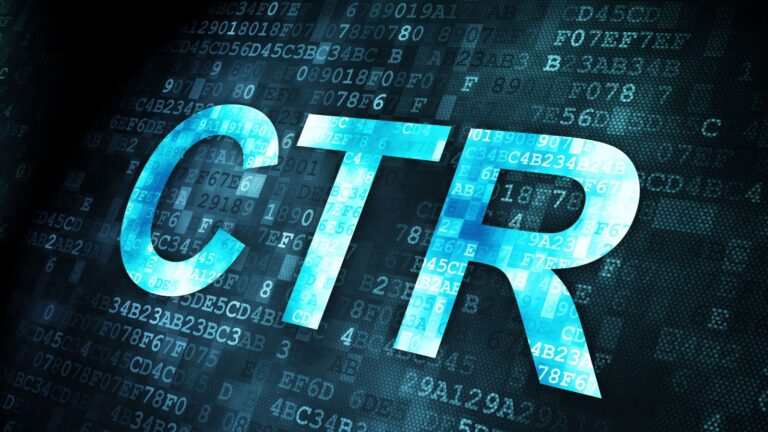What Technical SEO Issues Can You Solve with an SSL Certificate?
Technical SEO is an important part of digital marketing because it helps websites rank well. It includes a number of techniques used to make a website’s layout better so that search engines can find it. Getting an SSL certificate is one of the most important things you can do. What is an SSL certificate, though, and how does it help with technical SEO issues? Let’s get into the specifics.
What is an SSL Certificate?
A Secure Sockets Layer (SSL) certificate verifies the legitimacy of a website and makes it possible for a secure link. It basically makes sure that any information sent between a computer and a web server stays private and safe. Over the years, SSL certificates have changed. Now, TLS (Transport Layer protection) certificates offer better protection to replace SSL certificates.
Why SSL Certificates Are Crucial for Websites
Not only are SSL keys nice to have, but every website needs them. They make security better by encrypting data, which makes it harder for bad people to read or change the data that users and websites send and receive. They also build trust and trustworthiness because people are more likely to interact with websites that have security indicators, such as the padlock icon in the address bar.
The Impact of SSL on SEO
Google, the leading search engine, has been vocal about its preference for HTTPS over HTTP. Websites with SSL certificates are favored in search rankings, providing a significant SEO boost. This preference stems from Google’s commitment to ensuring a safer web environment for users.
Technical SEO Issues Addressed by SSL Certificates
Secure Data Transmission
One of the primary technical SEO issues that an SSL certificate addresses is the secure transmission of data. By encrypting the communication between the user’s browser and the web server, SSL certificates protect against data interception. This encrypted communication ensures that sensitive information, such as personal details and payment data, remains confidential.
Building Trust with Users
SSL certificates also play a crucial role in building trust with users. Visible indicators like the padlock icon and the “HTTPS” prefix in the address bar signal to users that the website is secure. This increased confidence can lead to a lower bounce rate and higher engagement, positively impacting SEO rankings.
Preventing Content Modification
Another significant benefit of SSL certificates is the prevention of content modification. By ensuring the integrity and authenticity of the data transmitted, SSL certificates protect against unauthorized changes. This is particularly important for maintaining the credibility and reliability of the content, which are key factors in SEO.
Mitigating Mixed Content Issues
Mixed content occurs when a website loads both secure (HTTPS) and non-secure (HTTP) content. This can trigger security warnings and negatively impact user experience. SSL certificates help in resolving these issues by ensuring that all content on a webpage is securely loaded, thus eliminating mixed content warnings.
Reducing SEO Penalties
Google’s ranking algorithm penalizes websites that do not use SSL certificates. Websites without SSL certificates are marked as “Not Secure,” which can deter users and lead to higher bounce rates. By implementing SSL certificates, websites can avoid these penalties and maintain better SEO performance.
How to Implement an SSL Certificate
Implementing an SSL certificate involves several steps:
- Purchasing an SSL Certificate: Choose a reputable certificate authority (CA) to purchase your SSL certificate.
- Installing an SSL Certificate: Follow the instructions provided by your CA to install the certificate on your web server.
- Redirecting HTTP to HTTPS: Use 301 redirects to ensure that all HTTP traffic is redirected to HTTPS, maintaining SEO benefits and ensuring a secure connection.
Common Challenges and Solutions in SSL Implementation
While implementing SSL certificates, you may encounter some challenges:
- Expired Certificates: Regularly monitor and renew your SSL certificates to avoid expiration issues.
- Mixed Content Warnings: Ensure all resources (images, scripts, etc.) are loaded over HTTPS to prevent mixed content warnings.
- Redirect Loops: Carefully configure redirects to avoid infinite redirect loops, which can negatively impact SEO.
Monitoring and Maintaining SSL Certificates
Once your SSL certificate is implemented, it’s crucial to monitor and maintain it:
- Regular Updates: Keep your SSL certificates up to date to benefit from the latest security features.
- Renewals and Alerts: Set up alerts for certificate renewals to prevent expiration and ensure continuous security.
Conclusion
In conclusion, SSL certificates are indispensable for addressing various technical SEO issues. From securing data transmission to building trust with users and preventing content modification, the benefits are extensive. By implementing and maintaining SSL certificates, you can enhance your website’s security, credibility, and SEO performance, ensuring a better experience for your users.
FAQs
What is the difference between HTTP and HTTPS?
HTTP (Hypertext Transfer Protocol) is the standard protocol for transferring data on the web, while HTTPS (Hypertext Transfer Protocol Secure) adds a layer of security through encryption.
How often should I renew my SSL certificate?
SSL certificates typically need to be renewed annually, although some providers offer multi-year options.
Can SSL certificates improve website speed?
While SSL certificates primarily enhance security, modern implementations can also improve website speed by enabling HTTP/2, which offers performance benefits.
What happens if I don’t use an SSL certificate?
Without an SSL certificate, your website is vulnerable to data interception and modification, and it may be penalized by search engines, resulting in lower rankings.
Are there different types of SSL certificates?
Yes, there are various types of SSL certificates, including domain validation (DV), organization validation (OV), and extended validation (EV) certificates, each offering different levels of security and trust.






